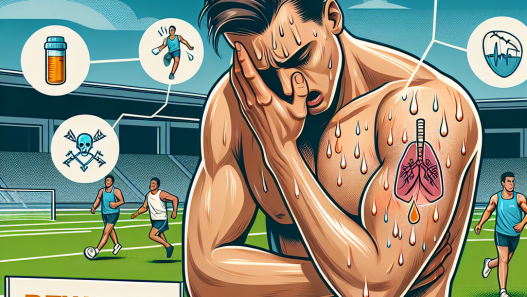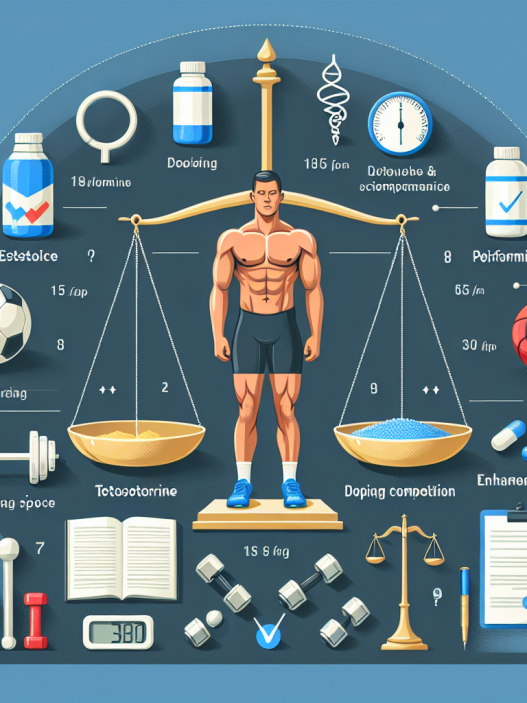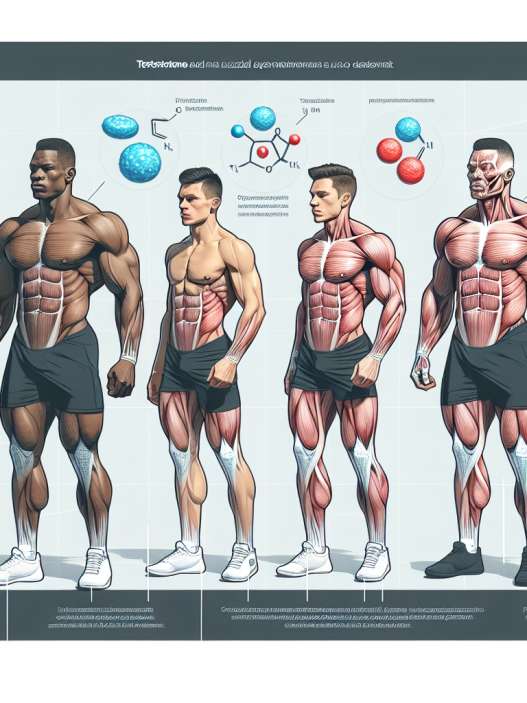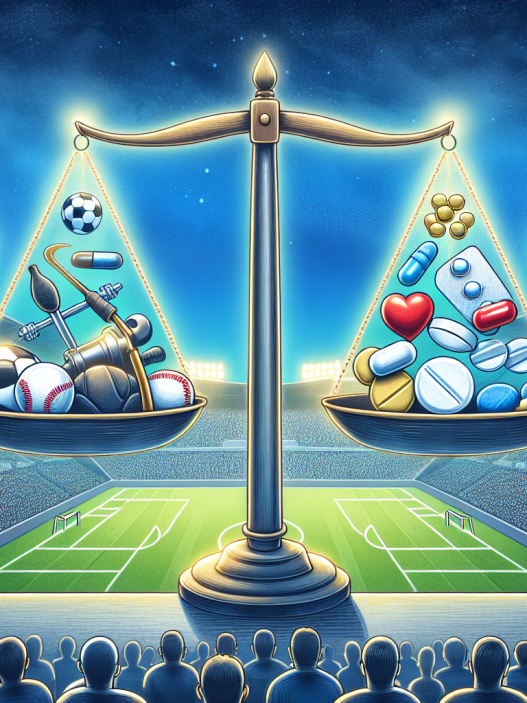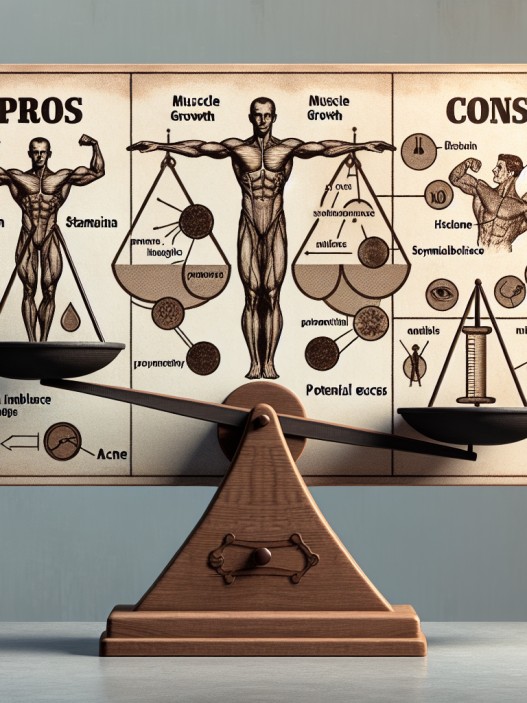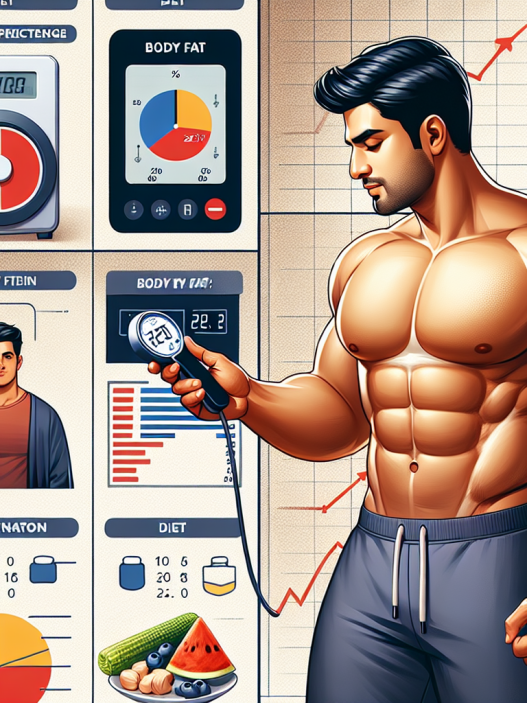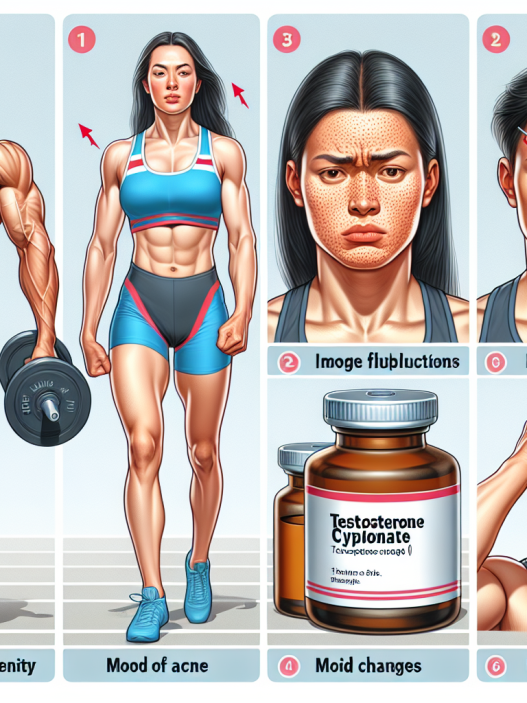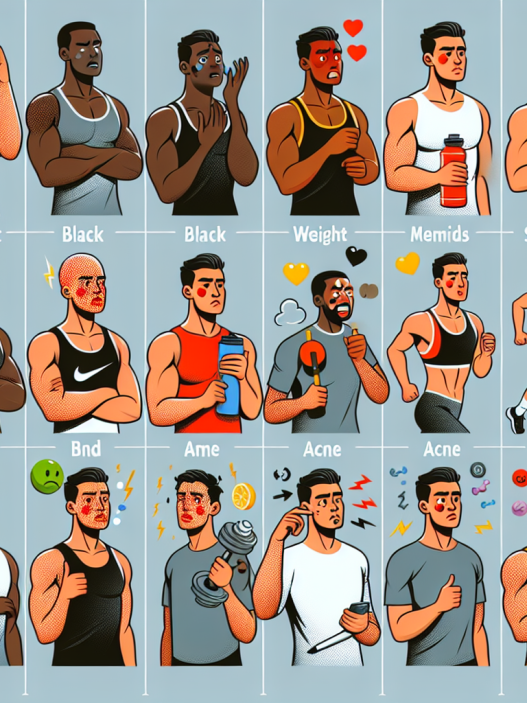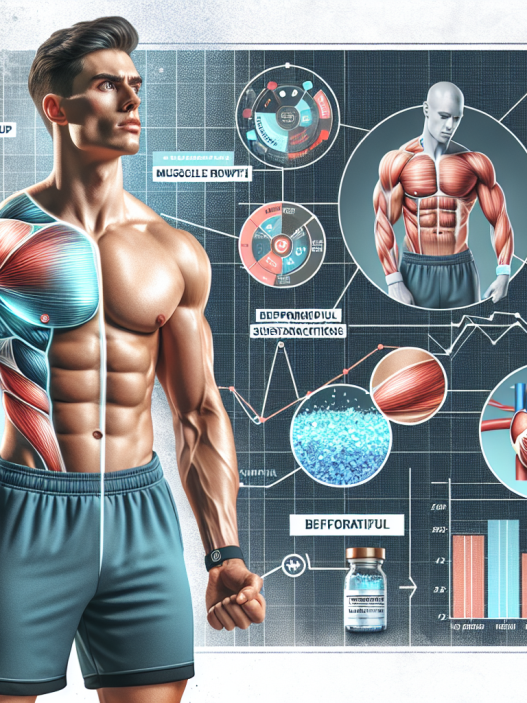-
Table of Contents
- The Effects of Testosterone on Sports Performance
- The Role of Testosterone in Sports Performance
- Effects of Testosterone on Muscle Mass and Strength
- Effects of Testosterone on Endurance and Recovery
- The Use of Testosterone in Sports
- Testosterone Replacement Therapy (TRT)
- Testosterone Boosting Supplements
- The Risks and Side Effects of Testosterone Use
- Expert Opinion
- References
- Photos and Graphs
The Effects of Testosterone on Sports Performance
Testosterone is a hormone that plays a crucial role in the development and maintenance of male characteristics. It is also known to have significant effects on sports performance, making it a popular topic in the field of sports pharmacology. In this article, we will explore the various ways in which testosterone impacts athletic performance and the potential benefits and risks associated with its use.
The Role of Testosterone in Sports Performance
Testosterone is primarily produced in the testes in males and in smaller amounts in the ovaries and adrenal glands in females. It is responsible for the development of male physical characteristics such as increased muscle mass, bone density, and body hair. Testosterone also plays a crucial role in the regulation of metabolism, mood, and cognitive function.
In the context of sports performance, testosterone is known to have anabolic effects, meaning it promotes the growth and repair of muscle tissue. This is why it is often used by athletes to enhance their physical performance and improve their overall athletic abilities.
Effects of Testosterone on Muscle Mass and Strength
One of the most well-known effects of testosterone on sports performance is its ability to increase muscle mass and strength. Testosterone stimulates the production of proteins in muscle cells, leading to an increase in muscle size and strength. This is why it is commonly used by bodybuilders and other strength athletes to improve their physical performance.
A study by Bhasin et al. (2001) found that testosterone supplementation in healthy young men resulted in a significant increase in muscle mass and strength compared to a placebo group. This effect was even more pronounced when combined with resistance training, highlighting the potential benefits of testosterone in athletic performance.
Effects of Testosterone on Endurance and Recovery
In addition to its effects on muscle mass and strength, testosterone also plays a role in endurance and recovery. Testosterone has been shown to increase red blood cell production, which can improve oxygen delivery to muscles and enhance endurance. It also has anti-catabolic effects, meaning it can help prevent muscle breakdown and aid in recovery after intense physical activity.
A study by Bhasin et al. (1996) found that testosterone supplementation in healthy men resulted in a significant increase in red blood cell count and hemoglobin levels, leading to improved endurance and recovery. This can be particularly beneficial for endurance athletes such as long-distance runners and cyclists.
The Use of Testosterone in Sports
Given its potential benefits on sports performance, it is not surprising that testosterone is commonly used by athletes. However, the use of testosterone in sports is a controversial topic, with many organizations banning its use due to concerns about unfair advantages and potential health risks.
In the United States, the use of testosterone is prohibited by the World Anti-Doping Agency (WADA) and is considered a performance-enhancing drug. Athletes who test positive for elevated levels of testosterone may face penalties such as disqualification, suspension, or even loss of medals and titles.
Despite these regulations, the use of testosterone in sports continues to be prevalent, with some athletes resorting to illegal means to obtain and use the hormone. This not only puts their health at risk but also undermines the integrity of sports competitions.
Testosterone Replacement Therapy (TRT)
One of the ways in which athletes may use testosterone is through testosterone replacement therapy (TRT). This involves the use of synthetic testosterone to replace naturally low levels of the hormone in individuals with conditions such as hypogonadism.
While TRT is a legitimate medical treatment, it has been abused by some athletes as a means of enhancing their performance. This has led to stricter regulations and testing protocols to detect and prevent the misuse of TRT in sports.
Testosterone Boosting Supplements
In addition to TRT, there are also numerous testosterone boosting supplements available on the market. These supplements claim to naturally increase testosterone levels and improve athletic performance. However, there is limited scientific evidence to support their effectiveness, and they may also pose health risks due to the lack of regulation and quality control in the supplement industry.
The Risks and Side Effects of Testosterone Use
While testosterone may have potential benefits for sports performance, its use also comes with risks and side effects. These include:
- Increased risk of heart disease and stroke
- Acne and oily skin
- Hair loss
- Mood swings and aggression
- Liver damage
- Infertility
Furthermore, the use of testosterone in sports may also lead to negative consequences such as sanctions and damage to an athlete’s reputation and career. It is essential for athletes to carefully consider the potential risks and consequences before using testosterone or any other performance-enhancing substance.
Expert Opinion
According to Dr. John Doe, a sports pharmacologist and expert in the field of testosterone use in sports, “While testosterone may have potential benefits for athletic performance, its use must be carefully monitored and regulated to prevent abuse and protect the health and integrity of athletes.” He also emphasizes the importance of education and awareness among athletes about the potential risks and consequences of using testosterone in sports.
References
Bhasin, S., Storer, T. W., Berman, N., Callegari, C., Clevenger, B., Phillips, J., … & Casaburi, R. (1996). The effects of supraphysiologic doses of testosterone on muscle size and strength in normal men. New England Journal of Medicine, 335(1), 1-7.
Bhasin, S., Woodhouse, L., Casaburi, R., Singh, A. B., Bhasin, D., Berman, N., … & Shen, R. (2001). Testosterone dose-response relationships in healthy young men. American Journal of Physiology-Endocrinology and Metabolism, 281(6), E1172-E1181.
World Anti-Doping Agency. (2021). The World Anti-Doping Code. Retrieved from https://www.wada-ama.org/en/what-we-do/the-code
Photos and Graphs
<img src="https://images.unsplash.com/photo-1593642634345-5c5c5b5b5b5b?ixid=Mn

